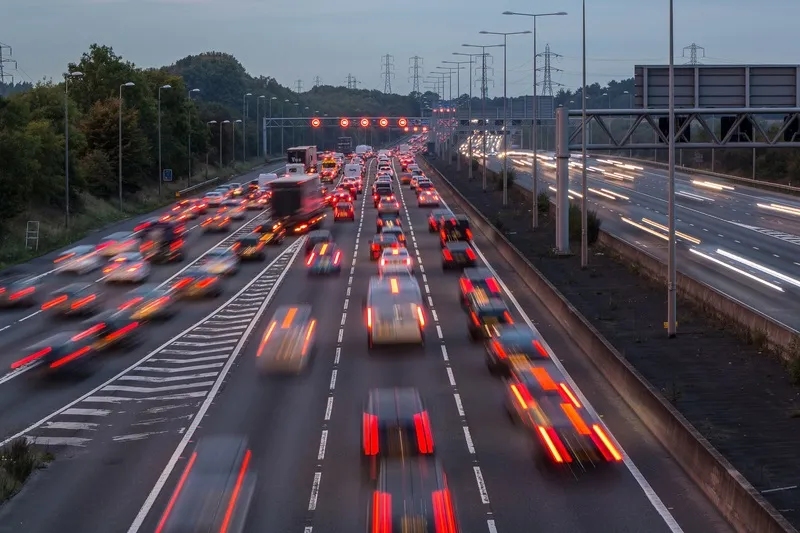Road users on the vast majority of the UK’s M25 will benefit from four-lane capacity now that the final section between junctions 25 and 27 has become a smart motorway. The road has been upgraded from three to four lanes in each direction, with the hard shoulder converted for use as a permanent traffic lane and enhanced on-road technology to manage traffic flow to improve the reliability of journey times, providing a boost for businesses and the wider economy.
The improvements on all sections of the M25 are part of a new generation of technology-driven improvements on the strategic road network known as ‘smart motorways’ with the permanent conversion of the hard shoulder for traffic, providing 24/7 extra capacity. The new infrastructure and technology that has been added between junctions 25 and 27 includes gantries spanning both carriageways, refuge areas, emergency telephones, overhead signals, verge-mounted signs and CCTV cameras.
Roads minister John Hayes said: “This upgrade is great news for 140,000 motorists who use this section of the M25 every day. It will mean smoother journeys, less congestion and provide a real boost to those businesses US$38 billion commitment to improve Britain’s roads by 2021 is helping to deliver a smarter motorway network that drives forward our economy and gets people to their destinations safely and on time.”
John Martin,
M25 upgraded to ‘smart’ motorway
Road users on the vast majority of the UK’s M25 will benefit from four-lane capacity now that the final section between junctions 25 and 27 has become a smart motorway. The road has been upgraded from three to four lanes in each direction, with the hard shoulder converted for use as a permanent traffic lane and enhanced on-road technology to manage traffic flow to improve the reliability of journey times, providing a boost for businesses and the wider economy.
November 10, 2014
Read time: 2 mins









